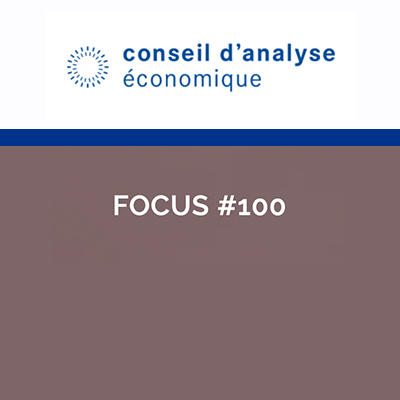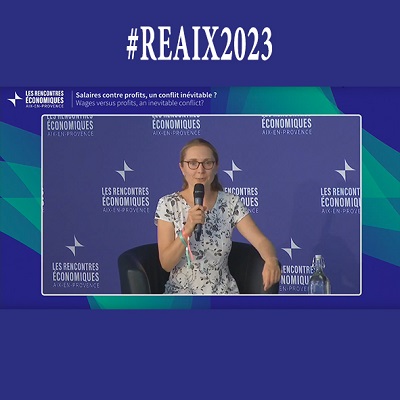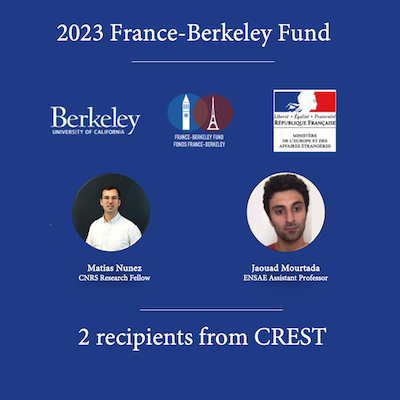At the end of the year, the doctoral students in CREST’s economics cluster organized a series of seminars for first-year doctoral students.
Cohesion & multidisciplinarity
Cohesion between doctoral students is essential. It fosters collaboration, the exchange of ideas and mutual support, creating an environment conducive to learning. Peer solidarity allows to share experiences, solve problems in groups and develop crucial skills. By fostering a team spirit, the cohesion between doctoral students contributes to their personal development and success in their doctoral studies.
These seminars provide another opportunity for first-year doctoral students to present their research. They highlight the theme of their research, as well as the specific questions they are tackling, and the methodology envisaged throughout their doctorate.
CREST doctoral students and researchers are invited to take in these seminars, where their experience in presenting their research enables young doctoral students to practice presenting their project clearly and concisely to people outside the field, thus providing a fresh and stimulating perspective.
The sessions also facilitate the establishment of links with researchers working in similar fields, giving PhD students the opportunity to obtain advice based on the experience of these researchers.
By emphasizing multidisciplinary within the same cluster, these seminars encourage doctoral students to benefit from reflections from the literature and approaches from other fields of research within CREST. This approach stimulates multidisciplinary reflection, enriching the research work of each student.
List of presentations
| Camille Boissel | Heterogeneous responses to labour policy |
| Sébastien Cerles | A model of advertising |
| Aurélien Frot | Job search biases in the data |
| Gaëtan Menard | Productivity in health economics |
| Clément Montes | A model of economic sanctions |
| Théo Roudil-Valentin | Corporate taxation following shocks |
| Pedro Vergara Merino | Econometrics of randomized experiment: theory and simulation |
| Vincent Verger | Natural Language Processing applied to political economy |
| Yiyun Zheng | A model of platforms and reputation |
Quand la course à une meilleure IA éclipse les travailleurs précaires
Une interview de Paola Tubaro pour le journal Estonian Public Broadcasting à Tallinn.
Réforme de 1990 : les effets de la participation obligatoire
Une analyse d’ Elio Nimier-David (CREST-ENSAE), David Sraer (UC Berkeley, CAE) David Thesmar (MIT Sloan School of Management), “Les effets de la participation obligatoire : les enseignements de la réforme de 1990“
Quand la course à une meilleure IA éclipse les travailleurs précaires
Une interview de Paola Tubaro pour le journal Estonian Public Broadcasting à Tallinn.
E. Macron : comment reprendre la main ?
Sur LCP, le sociologue Étienne Ollion était l’invité “Grand témoin” de l’émission “Ça vous regarde”.
Niger : chocs démographiques
Dans cet article du journal Les Echos, la journaliste Lucie Robequain, fait référence aux recherches de Pauline Rossi, enseignante en économie à l’École polytechnique et chercheuse au CREST.
MECSS : cotisations et contributions sociales
Commission de l’Assemblée nationale du lundi 10 juillet 2023.
Audition de M. Antoine Bozio, M. Clément Malgouyres et de Mme. Sophie Cottet
LES RENCONTRES ÉCONOMIQUES 2023 AIX-EN-PROVENCE
“Salaires contre profits, un conflit inévitable ?” Controverse 7 – Pauline ROSSI, professeure d’économie à l’Ecole Polytechnique et chercheuse au CREST était invitée par le Le Cercle des Économistes pour modérer le débat entre Frédéric SOUILLOT et Thibault LANXADE
“Say on Climate: the influential role of shareholders in company policies”
An article by Patricia Crifo and Ekaterina Ghosh in Polytechnique Insights – On July 6th, 2023
2023 France-Berkeley Fund: 2 recipients from the CREST

The France-Berkeley Fund
Established in 1993 as a partnership with the French Ministry of Foreign Affairs, the France-Berkeley Fund (FBF) promotes and supports scholarly exchange in all disciplines between faculty and research scientists at the University of California and their counterparts in France.
Through its annual grant competition, the FBF provides seed money for innovative, bi-national collaborations. The Fund’s core mission is to advance research of the highest caliber, to foster interdisciplinary inquiry, to encourage new partnerships, and to promote lasting institutional and intellectual cooperation between France and the United States.
2023-2024 Call: 2 CREST recipients
For the 2023-2024 call, 2 projects have been submitted and are getting funded:
• Decentralizing divorces
A project developed by Matias Nunez (CREST, CNRS Research fellow) and his counterpart Federico Echenique, Professor of Economics and Social Sciences at UC Berkeley.
Abstract:
This project focuses on the development of practical applications of mechanism design, a branch of economics concerned with developing well-functioning institutions that ensure efficient and fair outcomes. In particular, we will focus on legal settings where two persons need to reach an agreement while their preferences are misaligned. Examples are dissolution of partnerships, allocation of rights and duties among conflicting agents, and divorces. While a judge, legal experts and lengthy bargaining procedures are often needed in practice, we plan to develop economic tools to appraise reasonable compromises, reducing both cost and time.
• Towards Local, Distribution-Free and Efficient Guarantees in Aggregation and Statistical Learning
A project developed by Jaouad Mourtada (CREST, ENSAE Paris) and his counterpart Nikita Zhivotovskiy, Assistant Professor in Statistics at UC Berkeley.
Description:
Statistical learning theory is dedicated to the analysis of procedures for learning based on data. The general aim is to understand what guarantees on the prediction accuracy can be obtained, under which conditions and by which procedures. It can inform the design of sound and robust methods, that can withstand corruption in the data or departure from an idealized posited model, without sacrificing accuracy or efficiency in more favorable situations. In particular, the problem of aggregation can be formulated as follows: given a class of predictors and a sample, form a new predictor that is guaranteed to have an accuracy approaching that of the best predictor within the class, up to an error that should be as small as possible.
This problem can be cast in several settings and has been investigated through various angles in Statistics and Computer Science. While the topic is classical, it has seen a renewed interest through (for instance) the recent direction of robust statistical learning, which raises the question of the most general conditions under which a good accuracy can be achieved. Despite important progress, several important and basic questions have remained unanswered in the literature, which we aim to study.









